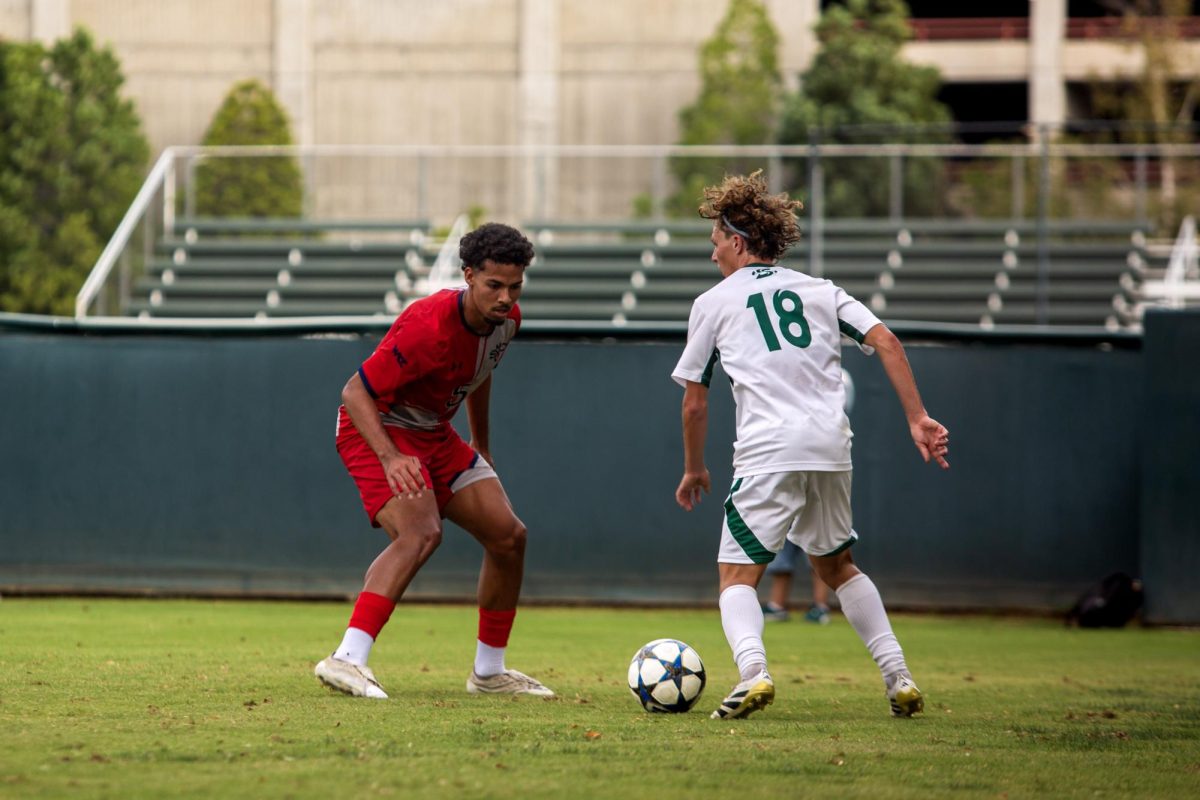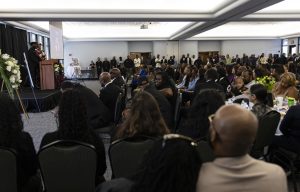Urban struggles shown in gang documentary
October 11, 2009
“Crips and Bloods, Made in America,” a documentary exposing the naked truth of the most famous gangs of Los Angeles, was shown in Hinde Auditorium Friday night.
The film was provided by the Campus Progressive Alliance as part of a Friday night film series.
Paul Burke, co-chair of the Faculty Progressive Alliance and professor of sociology, said the film series is “A way for people to come together, get more educated about the things going on in the world and hopefully also get active in working with us for social justice.”
The documentary showed the history of street gangs, the root causes of why impoverished youth join gangs and the solutions that can be made to end the cycle of violence and drugs related to street gangs. The film focused on the social, economic, historical and political factors that impact popular gang activity.
Burke, who grew up near the areas shown in the film, stressed the importance of knowing about gangs.
“For some Sac State students, they could have easily taken the path of the youth in this film rather than the path that brought them to Sac State,” Burke said. “This is a nationwide problem, so it’s not really going to be solved in the inner-city. It’s going to be solved when all of us realize that these are our children that we’re losing. We’re losing another generation.”
The heart-wrenching film attracted an almost full auditorium. Among students and faculty, were residents of the community who came to educate themselves and even their children about the nature and impact of gangs.
“To whoever put this on, I want to say thank you,” said Stephanie Morris, a resident of Sacramento who brought her 12-year-old son, Valen, to the film.
“I’m raising a young black male here and he’s totally unaware. That’s why I brought him here,” Morris said. “It’s his history. I don’t like to talk about it. It’s negative and strong and emotional, but I have to teach him this to survive.”
After the film, the audience was given the opportunity to participate in an open mic discussion. Many people spoke out about how the stories of gang members captured in the film related to their own experiences with racial prejudice, poverty and gang-related crime.
“I can tell you right now, if I didn’t have the choice to go to school, I’d be doing the same thing as them,” said Jafahri Oler, junior sociology major.
Oler said that the film was a powerful depiction of the root of the problem of gangs in America.
“Their options are limited and when you don’t give them that chance, they can only resort to mischief and violence and that’s why they end up in the prisons,” Oler said.
The discussion was not limited to comments. Members of the audience were also able to ask questions relating to the film.
“I want to know why we pay prison guards more than what we pay teachers,” said Christine Thomas, a resident of Sacramento. “It is more likely, if you are a minority mother, that your child will go to prison than your child will grow up and go to college. That is insane.”
The film showing ended with a call for all students, faculty and guests to get involved in the effort to prevent gang growth in Sacramento and nationwide.
The Campus Progressive Alliance provides showings of educational films once a month. The next film will be Oct. 30.
Inna Gritsak can be reached at [email protected].
























































































































